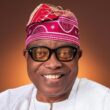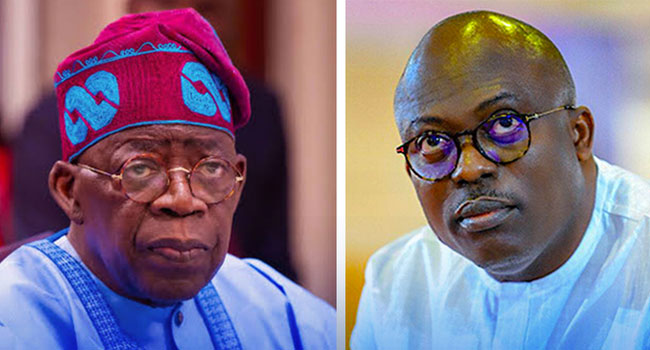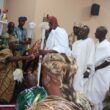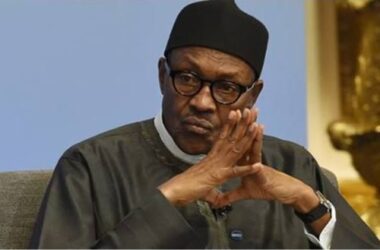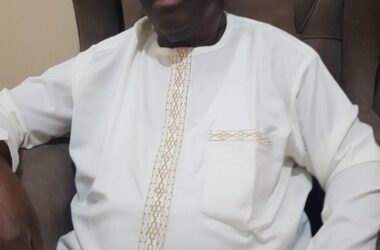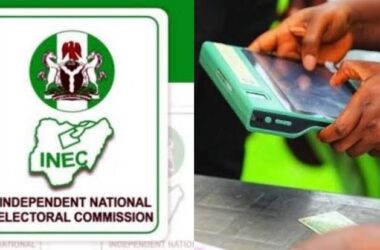Since President Bola Tinubu declared a state of emergency in Rivers State on March 18, 2025, the region has experienced a temporary calm. However, the suspension of Governor Siminalayi Fubara, his deputy, Prof. Ngozi Ordu, and the entire Legislative Arm has left the state’s political and economic landscape in disarray.
The suspension has raised concerns about the future stability of the region as it deals with the aftermath of the political upheaval.
Fubara, who was elected as governor in 2023, has now spent nearly two months without the official privileges of his office. His suspension has forced him into an uncomfortable position, one that has prompted him to seek reconciliation with his political mentor, Nyesom Wike, the current Minister of the Federal Capital Territory (FCT).
According to reports, Fubara made an important visit to Wike in Abuja on April 18, 2025, in an attempt to mend fences and ask for forgiveness. His meeting, which included notable Yoruba political figures like Ogun State Governor Dapo Abiodun and former Governor Segun Osoba, reflects a careful strategy. Wike had expressed concerns about the role of some elders in Rivers State, who he believed had contributed to the rift between him and Fubara.
The political tension in Rivers has deep roots. In 2023, many of Wike’s allies were at odds with the Peoples Democratic Party (PDP), particularly after the presidential candidate, Atiku Abubakar, secured the nomination to face Tinubu in the elections.
Wike’s refusal to support Atiku, coupled with his frustration over not being offered the vice-presidential slot, contributed to a fractured political climate. As Wike distanced himself from the PDP, other political figures, including former PDP National Chairman Prince Uche Secondus and former Governor Sir Celestine Omehia, rallied against Wike’s influence in Rivers.
Despite these challenges, Fubara has gradually recognized the need for a fresh approach to his political survival. It appears that he has accepted the reality that only true peace, free from political manipulation, can heal the state’s wounds. In recent weeks, Fubara has made multiple overtures toward peace, meeting with both Wike and President Tinubu to chart a path forward. In an attempt to bring about stability, Fubara visited Wike once again, this time to express his remorse and request forgiveness.
While the details of his discussions with the president remain unclear, speculation is rife that the meetings are part of a broader strategy for Fubara’s possible reinstatement. Sources close to the matter have suggested that Fubara’s return to office could be tied to the political dynamics between Wike and the central government. Fubara’s appeal to Wike, in particular, has not gone unnoticed, and many believe it signals the beginning of a potential political reconciliation.
As May 29 approaches, there is increasing pressure on President Tinubu to reinstate Fubara, especially with Democracy Day on the horizon. Political analysts suggest that this could be the perfect opportunity for the president to demonstrate his commitment to democratic principles. “Everything is in the realm of speculations,” said Prince Ogbonna Nwuke, a former member of the House of Representatives. “I think as a democrat, the president should use May 29 to show the world that he truly believes in democracy by reinstating Governor Fubara.”
Ann Kio Briggs, spokesperson for the Ijaw Republican Assembly (IRA), also weighed in, noting that Fubara’s reinstatement would be a crucial gesture for the people of Rivers State. “He has to be reinstated on May 29, being Democracy Day, so that the governor can join his colleagues to celebrate his second year in office,” Briggs stated.
Adding weight to the argument, Professor Benjamin Okaba, President of the Ijaw National Congress, emphasized that reinstating Fubara would allow the president to make a historic decision. “The president can make history by returning Fubara earlier than expected. Besides, he should make himself the president of all Nigerians, not to a particular person.”
For many, the return of Fubara to power is not just a political issue but a matter of restoring stability to a state that has been plagued by turmoil. Dr. Joseph Ambakederimo, convener of the South-South Reawakening Group, expressed hope that Fubara’s efforts to seek peace would be rewarded. “He has shown enough remorse and deserves to return to his duty post. The stakes are high, and Nigerians are eagerly waiting to hear what Mr. President will have to tell us on Democracy Day.”


